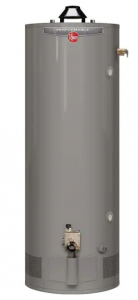Enter your email address
Below to receive updates
And special offers!
We Proudly Accept Credit:
![]()
NJ PLUMBING LIC #8859
NJ HVAC-R LIC #0954
NJ CONTRACTOR REG #13VH01545000
It’s always the winter cold that has many of us scrambling for a hot shower. We can’t seem to get warm enough and we’re not sure how much longer our water heater will hold out before it conks out on us. It’s always a good idea to make sure your hot water heater is in tip-top shape, but sometimes things happen, and only then do we realize how much we take hot water for granted!
Nonetheless, we’ve got you covered! This article helps answer many common questions you may have about your hot water heater! Let’s all keep our hot water, shall we?
The sound you hear is actually popping due to the buildup of minerals around the fire tube that heats the water. The minerals have openings where the water gets in and creates the sound you hear. There is no way to prevent this and it is a sign that the water heater will soon need to be replaced — but don’t panic! This is common and usually isn’t a sign of an emergency. If you’re hearing noises with discolored or cold water, that may mean it’s time to give us a call to check it out.
The average hot water heater is about 250 pounds when empty. As you can imagine, this makes it difficult to move install! Also, older units tend to have sediment build up in them sometimes making them over 300 pounds! Need help removing or installing? Give us a call!
The water heater will maintain temperature and will not freeze if operational. This does not mean that the discharge piping and piping associated with it will not freeze. The best way to prevent freezing is for it to work and maintain temperature.
Water not getting hot? Water around the base of the hot water heater? These can be clear signs that your hot water is broken. Best thing to do is reach out to an expert. Around the Princeton, NJ area? Give us a call!
Water leaking from any part of a hot water heater is not a good sign. This usually means the vent pipe associated with the water heater exhaust gases has a hole/leak and is not repairable. This would be a good time to get an expert involved.
The water heater has a leak or in some cases, the AC condensate pipe (which may or may not drain into the common pan) has clogged. On rare occasions, the water coming into the water heater is so cold, it is creating condensation. This would be typical when starting up a new water heater. Usually this isn’t a sign of concern. Is there water around the unit and on the floor?
You probably need a new heater give a local contractor a call.
A functional hot water heater prevents freezing. If your hot water heater is in fact frozen, you would certainly need to seek professional service as this would be more of a substantial problem indicating additional frozen pipes throughout the home.
Nobody likes hot water that doesn’t quite get hot enough. Lukewarm water may be a sign that the master controller may be bad, or the temperature setting may be set too low. However, more commonly, all of the hot water may be exhausted, and the size of the water heater cannot keep up with the demand. Ever have a family take multiple showers back-to-back? Try refraining from using any hot water for an hour and give the tank some time to refill. Still not hot? It may be time to reach out to an expert to uncover any unforeseen issues.
Overall, you may not realize it, but water heaters are a major part of your household. From the first time you turn on that switch to get warm water in the morning to when you’re cooking dinner and want running water at the sink, there’s no denying how important they are for our day-to-day lives. But what happens when something goes wrong? We hoped this article helped you answer some of the frequent questions we hear from our clients.